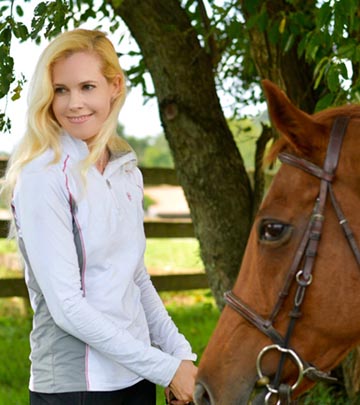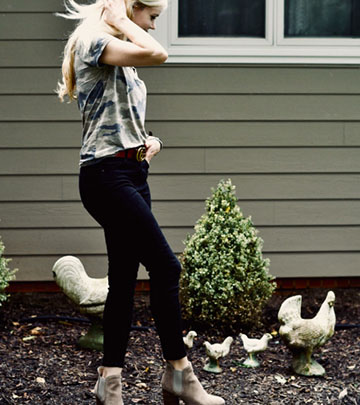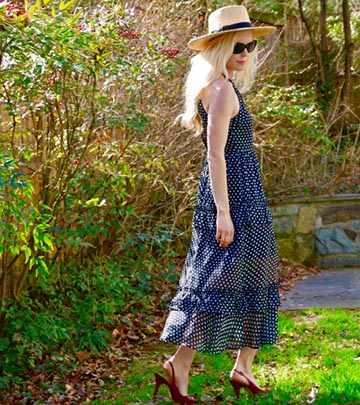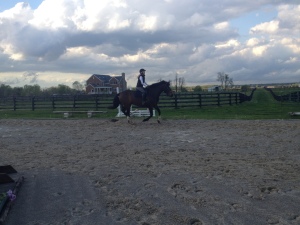What should a stable consider in protecting itself when a boarder has a guest that frequently rides their horse – often more frequently than the boarder? There is no boarding agreement executed with this person because they are not the party paying for the horse and its upkeep.
In light of this atypical relationship, how should a stable owner proceed?
This scenario presents an unusual circumstance in that the boarder with whom the stable has the boarding agreement with is not the person who is regularly riding the horse on the premises. Rather, it is the “authorized guest”–the person who is frequently out at the stable, riding and handling the horse. In this type of situation, there are some clauses and documents to consider:
1. Liability Release: As with all guests, the authorized guest/rider should execute an Equine Activity Release and Hold Harmless Agreement before riding and having any contact with the horse. Make sure to include state specific statutes, as appropriate.
For example, Kentucky requires the following language in written contracts: “WARNING”: Under Kentucky law, a farm animal activity sponsor, farm animal professional, or other person does not have the duty to eliminate all risks of injury of participation in farm animal activities. There are inherent risks of injury that you voluntarily accept if you participate in farm animal activities.” (See e.g., KRS Section 247.402).
Also, consider incorporating into this document that the rider/authorized guest agrees to be responsible for following the stable’s rules, checking fit and condition of tack prior to mounting, and wearing a properly fitted and adjusted ASTM/SEI approved helmet at all times when mounted. As with other contracts, make sure that adults execute on behalf of minors. This document may also include a choice of venue and law, if litigation is filed, as well as a provision for attorneys’ fees. Litigation is a reality of the equestrian sport.
2. Farm rules: Farm rules and conditions are to ensure the safety of riders and horse, as well as ensure the smooth operation of the farm. Consider making the “farm rules” a separate document that both the boarder and the authorized guest/rider must execute separately, agreeing to abide by such rules. It may be smart option to include language that if the stable determines that the owner’s guest failed to abide by the stable’s rules that the stable can terminate the boarding agreement, or take such other action as it deems appropriate.
3. The Owner’s Boarding Agreement: It also may be a good option to tailor the boarding agreement to be more “expansive” in this regard. For example, to include in the boarding agreement that the horse owner (boarder) accepts responsibility for the conduct of his/her guests and that they act in accordance with the prescribed farm rules. Further, that the owner agrees to hold harmless and indemnify the stable against among other things, claims/losses/injuries alleged or sustained by a person caused by or arising from the actions (or inaction) of an owner’s guests.
4. Emergency Contact Information Sheet (human): In the event of the unexpected, illness, or injury, ensure that the authorized guest/rider has executed an human emergency contact sheet. This is likely not a document that one would request with a one-time only guest. Provisions to include on this sheet are the basics (name, horse riding, owner of horse, contact information, etc.). Also, consider requesting the contact information for two emergency contacts, whether it is acceptable to contact an ambulance in the event of an emergency, and potentially insurance information, as appropriate.
5. Permission and accompanied by the boarder? Sometimes boarding agreements and/or farm rules are written such that a guest may only come on the premises with permission and must be accompanied by the boarder. Consider your position on this.
The pros: stable knows who is on the premises and has control; cons: boarders are paying for a service and the “experience” and while he/she may be agreeable to being responsible for guest, he/she may not want to contact you every time a guest wants to come out to the stable, particularly if the situation is that of a recurring/frequent guest that is riding/handling the horse. You may need to tailor the agreements, as appropriate.
In short, an authorized guest situation calls for attention as an individual who is riding and handling a horse on the property. Be mindful of how to balance the needs of the stable with that of the boarder but also taking into account the legalities of the situation.
*This article previously appeared on Rate My Horse PRO.




